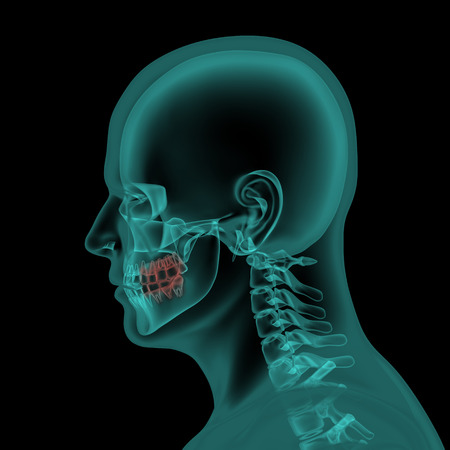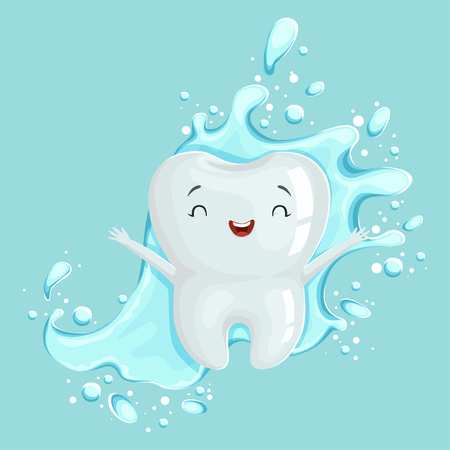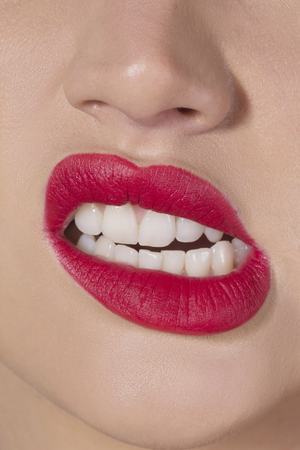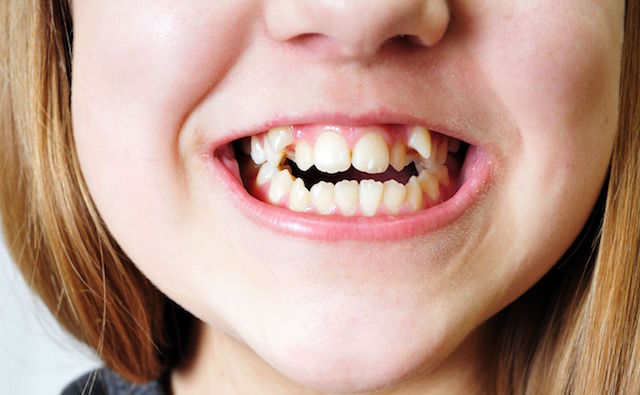Yearning for a straight smile isn’t the only incentive for aligning your teeth. Crooked or crowded teeth could lead to serious health issues prompting a greater initiative for seeking orthodontic care.
Here are 8 Ways Crooked Teeth Impact Your Health
1. Causes gum disease – Developing periodontal, or gum, disease is a common ramification of crooked teeth. Gum disease develops when bacteria in our mouth forms into plaque. The problem accentuates when your gums don’t fit securely around your teeth, leaving more room for bacteria to grow.
2. Creates difficulty cleaning teeth – Toothbrush bristles and floss have a difficult time reaching the nooks and crannies between crooked teeth, which can lead to bacteria growth.
3. Creates tooth wear – Crowded bottom teeth often cause one or more teeth to protrude, which can rub against your upper teeth. Over time, this can lead to undue wear of tooth enamel.
4. Increases risk of tooth injuries – Protruding upper teeth are more likely to chip or crack in the event of an accident.
5. Creates chewing difficulties – Protruding upper and lower teeth may rub together in a way that prevents normal jaw alignment, making it difficult to chew.
6. Causes bad breath – As bad as crooked teeth look, they can smell even worse. Unless you’ve just eaten an onion, bad breath is generally caused by lingering mouth bacteria, which can be difficult to eradicate from in between crooked teeth.
7. Damages self-esteem and happiness – Several studies have indicated that a better looking smile increases the amount you smile, which can lower stress and improve cognitive ability. Having crooked teeth may reduce your confidence in your smile, thus reducing how much you show your pearly whites.
8. Decreases overall health – Few people realize that dental issues can seriously affect more than just their oral health. Studies by the ADA have proven that oral infections caused by bacteria buildup may lead to more serious ailments, including heart disease, stroke, diabetes and pneumonia.
A Clear Solution to Crooked Teeth
Reading this list may have convinced you to finally get your teeth straightened. Fortunately, a solution like Invisalign provides an easy, nearly transparent way to fix crooked teeth.
Invisalign is a technology that uses retainer-like transparent aligners to straighten your teeth and/or align your bite. You wear the aligners for at least 22 hours per day, removing them only for eating or drinking. Then, every two weeks, you put in a new set of aligners to further shift your teeth.
Most Invisalign patients love that the technology doesn’t depend on bulky metal braces to correct their smile. In fact, most people don’t even realize a person is wearing Invisalign unless they’re told.
Moreover, Invisalign aligners are easy to remove, making it simple to brush and floss your teeth. Cosmetically, this also prevents stains from accumulating on your teeth, a common problem with metal braces.
Average Invisalign treatment lasts between 8 months and a year, but differs widely by individual case.
To determine if you’re a good Invisalign candidate, set up a consultation with a dentist or orthodontist who supports Invisalign. An Invisalign Assessment Test can also be a good indication, but understand that only a certified expert can tell you with certainty whether or not Invisalign will work for you.
Many people are surprised to find that crooked teeth can affect more than just their dental health, possibly affecting their heart and even their mind. Straightening your teeth with a solution like Invisalign can improve your smile and help you live a happier, healthier life.

Jaw Surgery (Orthognathic Surgery)
Jaw Surgery (Orthognathic Surgery) Have you been told that you may need to go for jaw surgery? If you're looking for more information about this procedure then continue reading this post as we break down all the information you'll need to know about jaw surgery. What...

Which Mouthwash is Best for You?
Which Mouthwash is Best for You!? Do you have bad breath? Has your dentist or orthodontist mentioned to you that you have plaque buildup or gingivitis? If any of these issues are occurring then it might be time to invest in a Mouthwash or Rinse. Rinsing your mouth can...

What is Bruxism?
What is Bruxism? Do you grind or clench your teeth? If so, then you may have a condition which is known as bruxism. There are two kinds of bruxism that people can have, one being awake bruxism and the other being sleep bruxism. Awake bruxism occurs when a person...

